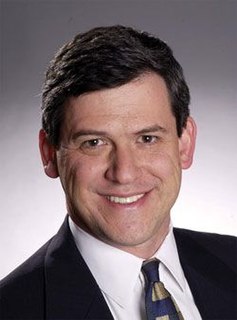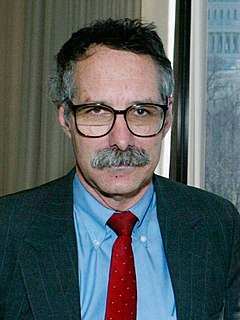A Quote by John F. Kerry
Nobody's interests are served by what's happening in Syria today. It's a catastrophe. It's the worst human catastrophe since World War II. And, as I said just now, it represents a failure of the entire international community to come to grips with solving it.
Related Quotes
World War II made war reputable because it was a just war. I wouldn't have missed it for anything. You know how many other just wars there have been? Not many. And the guys I served with became my brothers. If it weren't for World War II, I'd now be the garden editor of The Indianapolis Star. I wouldn't have moved away.
What's going on in Syria is the worst humanitarian crisis since World War II. And we are punishing those who are suffering most in this circumstance, in this condition. We vet refugees from Syria for a period of 18 to 24 months before they're allowed to come to the United States. And, you know, if you will permit me, I think we know more about them by the time they get here than we know about the president's finances.
Catastrophe Theory is-quite likely-the first coherent attempt (since Aristotelian logic) to give a theory on analogy. When narrow-minded scientists object to Catastrophe Theory that it gives no more than analogies, or metaphors, they do not realise that they are stating the proper aim of Catastrophe Theory, which is to classify all possible types of analogous situations.
We [with Shindzo Abe] should understand that the results of that terrible tragedy of the 20th century, namely World War II, are enshrined in corresponding international documents, and finding a way to settle all disputes without destroying the entire foundation of international law that evolved as a result of World War II is a highly delicate task. Therefore, I would like to reiterate that we cannot second-guess the course, let alone the outcome of our negotiations.
Humanity is sitting on a time bomb. If the vast majority of the world's scientists are right, we have just ten years to avert a major catastrophe that could send our entire planet's climate system into a tail-spin of epic destruction involving extreme weather, floods, droughts, epidemics and killer heat waves beyond anything we have ever experienced - a catastrophe of our own making.
We have to recognize that the reason that the global order that we've enjoyed and almost take for granted over the last several years exists is that after World War II, the United States and its allies tried to build an antidote to what they had seen between World War I and World War II. There, they'd seen protectionism, beggar-thy-neighbor trading policies, so they said, we'll build an open international economy. And they did that.
The current perception I get from the evening news is that the world is dominated by human failure, crime, catastrophe, corruption, and tragedy. We are all tuning in to see how the human mind is evolving, but the media keeps hammering home the opposite, that the human mind is mired in darkness and folly.


































